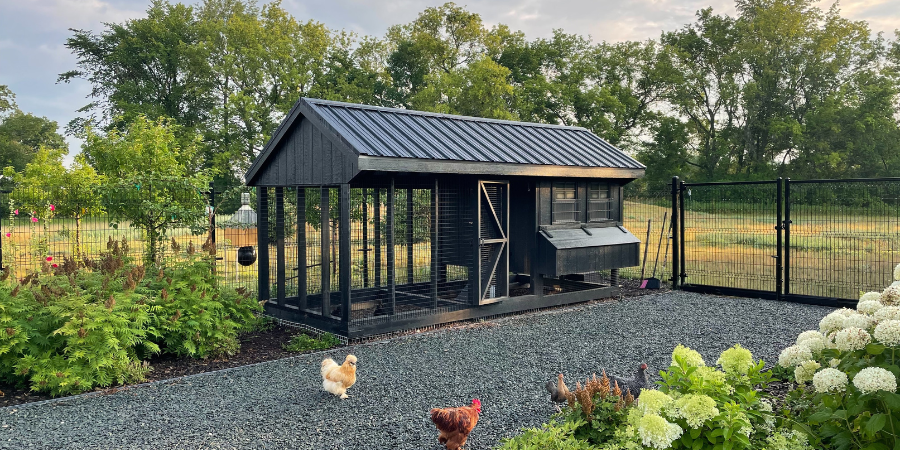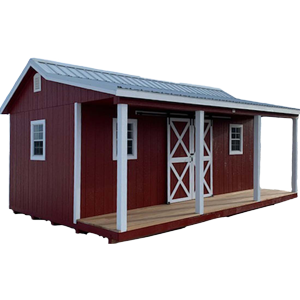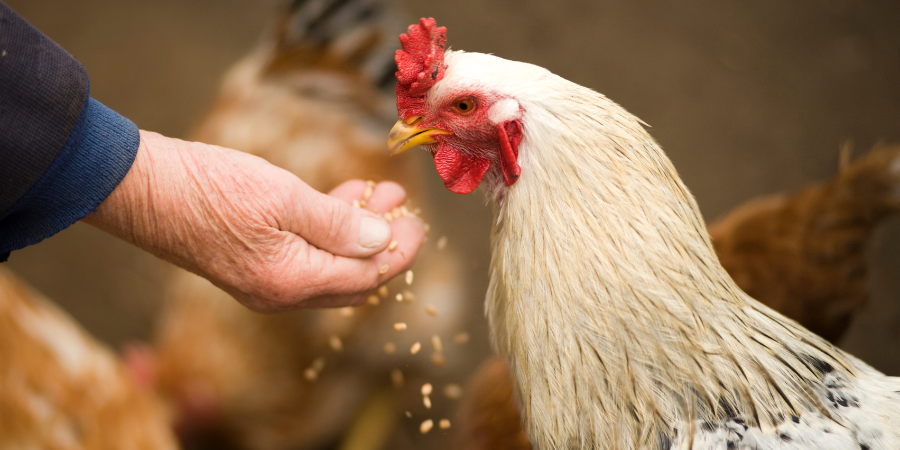How Long Do Chickens Live? Discover the Fascinating Chickens Lifespan
by Dakota Storage Buildings, on August 23, 2023

As more and more people discover the joy of raising chickens, questions tend to follow. If you're considering starting your flock, or perhaps you already raise backyard chickens, you may have the same questions. Do not worry; we want to guide you through all the important information you need to ensure a rewarding, long-term relationship with your flock. To keep your flock happy and healthy, you must understand the factors that affect their life expectancy and how you can significantly enhance the quality and length of your chickens' lives as a backyard chicken owner.
Understanding the Lifespan of Backyard Chickens
On average, a backyard chicken can live between 5 to 10 years. However, they can live up to 15 years or more with optimal living conditions. The world record, as it stands, is held by a chicken that lived to the ripe old age of 22. It is worth mentioning that such instances are exceptions and not the norm. Some chicken breeds are known for their longevity, like heritage breeds. These chickens are known to live longer than other breeds. Bantam breeds are also often noted for their longer lifespan, often living well into their teens. Commercial breeds like White Leghorns or ISA Browns typically have a shorter lifespan. They have been selectively bred for high egg production, which can take a toll on their bodies and shorten their lifespan.
Three Factors that Affect Lifespan
Just like us humans, the lifespan of chickens is not only determined by their genetics. Many factors, including disease, nutrition, and housing, can significantly impact their longevity. Let's take a deeper dive into these factors and understand how they influence the life expectancy of your flock.
Disease
One of the primary threats to your chickens' health and longevity is disease. Some common diseases include mites, lice, and worms that can cause various problems, from skin irritation and feather damage to anemia. Such infestations not only harm the physical health of your chickens but also affect their overall comfort and well-being. You can detect these parasites early and take appropriate action by ensuring regular health checks. Regular worming and dusting of your chicken coop, coupled with maintaining a healthy diet, can play a significant role in reducing these health issues. These actions will not only help eliminate these pesky parasites but also enhance the immune system of your chickens, allowing them to better resist potential diseases.
Nutrition
What you feed your chickens is another critical determinant of their lifespan. A balanced diet is crucial to their health and longevity. Chicken care requires a diet rich in proteins, vitamins, and minerals to thrive. Overfeeding, especially with treats, can lead to obesity, while excess protein can result in kidney problems, reducing your chickens' lifespan. While treating your chickens to kitchen scraps and leftovers is tempting, be aware that not all foods are safe for them. Some foods, like onions, chocolate, and avocado, can be toxic to chickens. A chicken that receives proper nutrition will produce better quality eggs and live a healthier, longer life.
Housing and Care
The environment you provide for your chickens significantly affects their lifespan. Chickens need a secure, comfortable place to live. The ideal chicken coop protects from harsh weather conditions and protects against predators, ranging from raccoons and foxes to hawks and neighborhood dogs. The coop should be regularly cleaned to minimize disease and be large enough to prevent overcrowding. Providing sufficient space for each chicken promotes better health and longer life.
Give Your Chickens the Best Chance at a Long Lifespan
Here are some strategies to help increase your chickens’ life expectancy, ensuring you and your flock enjoy many happy years together.
Provide a Nutritious Diet: Food is the fuel that keeps your chickens going. A balanced diet enriched with the right mix of protein, calcium, vitamins, and minerals is key to their overall health and longevity. Chickens have an instinct to scratch and forage for food. Allowing them to do so gives them exercise and a diet rich in insects, worms, and greens, contributing to their nutritional intake.
Ensure a Clean Living Area: A clean living area can significantly reduce disease risk. Their bedding should be changed regularly, and the coop should be deep cleaned at least once every few months. This includes removing all bedding and scrubbing the floors, walls, and perches with a chicken-safe disinfectant.
Supply Clean, Fresh Water: Clean, fresh water is as essential to chickens as it is to us. Dehydration can lead to serious health problems and significantly reduce your chickens' lifespan. Ensure that your chickens always have access to fresh water. During the summer, check the water supply more frequently, as chickens drink more in hot weather.
Protection from Predators: A secure coop invests in your chickens' longevity. Coops should be strong and secure enough to keep predators out. Using sturdy materials, predator-proof locks, and secure fencing can go a long way in protecting your flock. For added security, consider installing an automatic coop door that closes at dusk and opens at dawn, ensuring your chickens are safe when they are most vulnerable at night.
Perform Regular Health Checkups: Regular health checkups are essential when you are raising chickens because they can catch problems early before they become severe. Checking your chickens daily for any signs of illness, such as changes in behavior, reduced appetite, or a decrease in egg production, can help you act quickly and potentially extend their lives.
Cultivate a Stress-free, Safe Environment: Chickens are sensitive creatures and can get stressed easily. Loud noises, overcrowding, frequent changes in their environment, and constant human interference can all lead to stress in chickens. This stress can result in decreased egg production, aggressive behavior, and a lowered immune response, reducing their lifespan. Creating a calm, consistent environment with adequate space for each chicken is key to a longer, happier life.
Encourage Free-ranging and Dust Baths: Chickens are naturally active animals. They love scratching the ground, pecking at insects, and taking dust baths. These activities keep them engaged and contribute to their physical health and well-being. Providing your chickens with free-range space can keep them happy and help them live longer.

A Beginners Guide to Raising Happy and Healthy Backyard Chicken
While the length of a chicken's life is important, the quality of that life matters just as much, if not more. Providing the best possible care for your chickens involves ensuring their physical health and respecting and nurturing their personalities and behavioral instincts. Every day with your chickens is a learning experience, a chance to understand them better, and an opportunity to improve their living conditions. Our Beginners Guide to Getting Backyard Chickens has detailed information, practical tips, and expert advice to help you raise happy, healthy chickens. If you are ready to learn and grow in your chicken-raising skills, download our free guide today!


























